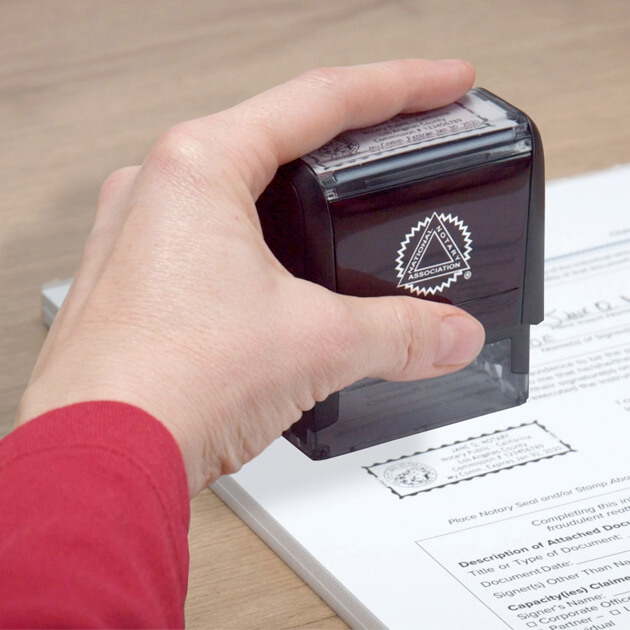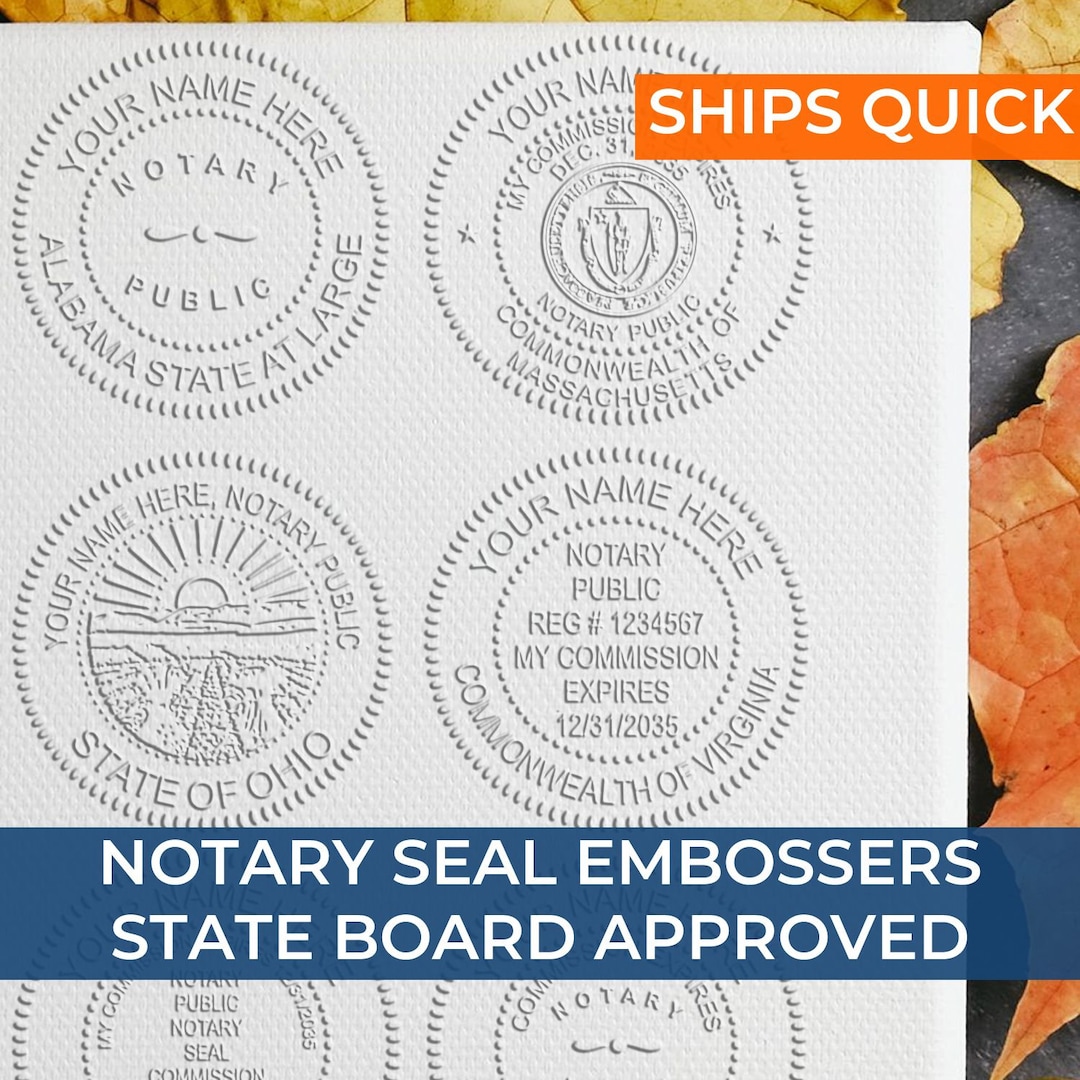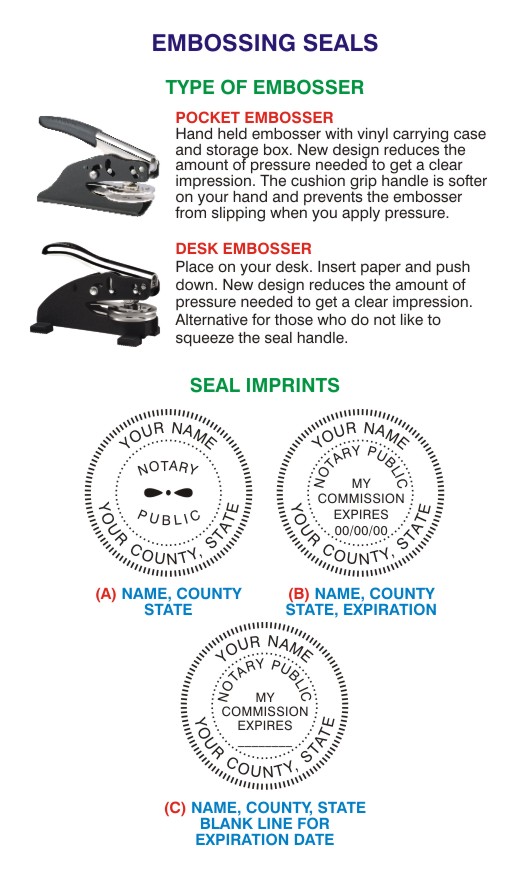Do I Need A Notary Stamp And Embosser

Imagine a crisp document lying on your desk, crucial to a life-altering decision. A house sale, a power of attorney, an important affidavit. The final touch, the mark that seals the deal, is about to be applied: a notary's stamp and possibly, an embosser, leaving a raised impression on the page. But a question lingers: are both truly necessary, or is one enough?
The question of whether you need both a notary stamp and embosser is surprisingly complex and depends almost entirely on your state's specific regulations. While a notary stamp is universally required, the necessity of an embosser varies widely, making understanding local laws critical for notaries public.
The Foundation: Notary Stamps
A notary stamp, often referred to as a seal, is the primary tool that authenticates a notary's signature and official acts. The stamp typically includes the notary's name, their jurisdiction (state and county), commission number, and commission expiration date. It serves as a visual verification that the notary is authorized to perform notarial acts.
The requirement for a notary stamp is near-universal across the United States. It provides a clear and reproducible record of the notarization, especially when documents are photocopied or transmitted digitally. Without a stamp, the notarization may be considered invalid, rendering the document legally questionable.
The Embosser: A Touch of Tradition, a Question of Legality
An embosser creates a raised impression on the paper, offering a tactile confirmation of authenticity. It's a tradition that dates back to times when paper documents were the primary form of legal record. But is it still necessary?
The answer lies in the specific laws of each state. Some states, like California and Florida, mandate the use of a rubber stamp but do not require embossers. Other states may allow notaries to choose between a stamp and an embosser, or require both. Even within a state, certain types of documents might necessitate an embosser alongside the stamp.
Why the Variability?
The variation in embosser requirements reflects a broader debate about security and accessibility. Some argue that embossers add an extra layer of security, making documents harder to forge. Others contend that a well-designed stamp with security features (like a unique serial number or a specific font) offers sufficient protection and is more easily reproducible.
The rise of digital documents has also played a role. Embossed seals don't always reproduce well when scanned or photocopied, potentially hindering the document's usability. Stamps, on the other hand, are designed to be clear and legible regardless of the reproduction method.
Finding the Right Answer for You
So, how do you determine whether you need an embosser in addition to your stamp? The best approach is to consult your state's notary laws and regulations. Many states' Secretary of State websites offer detailed information about notary requirements, including specific guidance on stamps and embossers.
You can also contact your state's notary association for clarification. These associations are valuable resources for notaries, offering training, support, and up-to-date information on legal requirements. Furthermore, consulting with a legal professional specializing in notary law can provide personalized advice based on your specific circumstances.
Beyond the Basics: Best Practices
Regardless of whether an embosser is legally required, adopting best practices in notarization is crucial. This includes maintaining a detailed record of all notarial acts in a journal, verifying the identity of the signer through proper identification, and ensuring that the signer understands the document they are signing.
Proper storage and maintenance of both your stamp and embosser are also essential. Keep them in a secure location to prevent unauthorized use, and replace them if they become damaged or worn. A clear, legible stamp and a well-maintained embosser project professionalism and enhance the credibility of your notarial acts.
In conclusion, while a notary stamp is a non-negotiable requirement, the need for an embosser is a matter of state-specific law. Navigating this can be tricky, but prioritizing accuracy and compliance will safeguard your notarial practice and ensure the validity of the documents you notarize. By staying informed and seeking clarification when needed, notaries can confidently perform their duties, ensuring the smooth functioning of legal and business transactions.


















